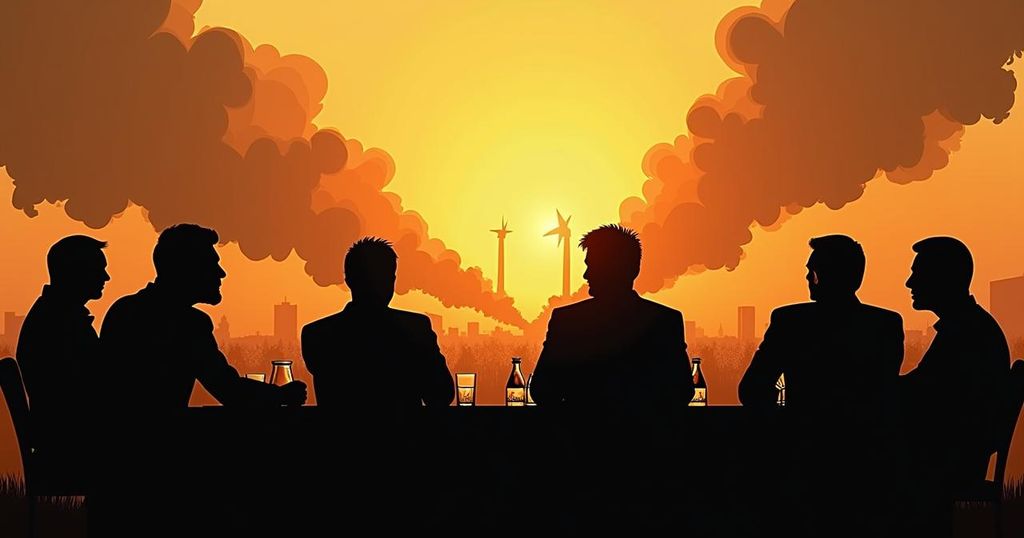This article discusses the escalating conflict between Israel and Hezbollah in Lebanon, drawing insights from experts Aaron David Miller and Hussein Ibish. The violence has resulted in significant civilian casualties, raising concerns about the strategic implications of Israel’s military tactics and the potential for broader regional instability involving Iran. The experts emphasize the importance of U.S. intervention and dialogue for de-escalating tensions, questioning whether current military strategies will yield sustainable security for Israel or the region.
The recent escalation of violent clashes between Israel and Hezbollah in Lebanon has drawn significant attention from experts and analysts. During a discussion framed by Geoff Bennett, Aaron David Miller, a senior fellow at the Carnegie Endowment for International Peace, and Hussein Ibish, a senior resident scholar at the Arab Gulf States Institute, presented their insights regarding the conflict’s complex dynamics. The violence has reportedly claimed the lives of 492 individuals, highlighting the severe humanitarian crises triggered by the military operations. With respect to Israel’s military strategy, Mr. Ibish articulated that the approach resembles prior tactics employed in Gaza, targeting not only Hezbollah but also various infrastructures perceived to be advantageous to the group. He emphasized that such strikes can have psychological ramifications and often reflect a quest for retribution rather than a clear tactical objective. Mr. Miller acknowledged the legitimacy of the concerns faced by Israel as Hezbollah escalated its activities, yet he questioned whether the military pressures would effectively yield sustainable solutions. As the dialogue proceeded, the potential for a ground invasion by Israel was considered. Mr. Ibish expressed skepticism, suggesting that while Hezbollah bears responsibility for entrenching Lebanon in a conflict that does not align with the country’s interests, an all-out land invasion would likely not be imminent. He warned, however, that Israel’s current military actions might lead to an ever-deepening cycle of violence without guaranteeing the security they seek. Furthermore, the discussions elevated the role of Iran in this escalating conflict. Mr. Miller posited that while escalation could provoke Iran into a more belligerent posture, it is crucial to recognize that neither Israel nor Iran desires a direct conflict. The mutual apprehension of a multi-front war may restrain their actions. The conversation also underscored the pivotal role of the United States in influencing the trajectory of conflict de-escalation. Mr. Ibish suggested that Washington could actively encourage restraint from Israel and navigate the delicate balance of power among regional actors. Both experts agreed that de-escalation would necessitate Hezbollah’s disengagement from hostilities and that the U.S. must firmly communicate its stance on the limitations of support in a broader conflict.
The context for this discussion stems from a series of violent incidents that escalated dramatically after the initial outbreak of hostilities on October 8, when Hezbollah took a more aggressive stance aligned with Iranian interests. The repercussions have significantly impacted the civilian population in Lebanon, with grave losses reported. The geopolitical implications of the unfolding situation warrant close examination, as they might complicate broader Middle Eastern dynamics involving Iran and its influence via proxy groups like Hezbollah and Hamas. The experts were particularly focused on how this conflict interacts with U.S. foreign policy in the region.
In summary, the ongoing military conflict between Israel and Hezbollah is marked by complex geopolitical tensions and humanitarian crises. Expert insights suggest that while both sides are engaged in a hostile escalation, the broader consequences may compel a reevaluation of strategy to avoid a multi-front war. The engagement and restraint of U.S. geopolitical interests will be crucial in guiding de-escalation efforts and stabilizing the region. As violence continues to escalate, the hope for a diplomatic solution remains tenuous amidst competing interests.
Original Source: www.pbs.org







